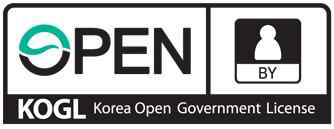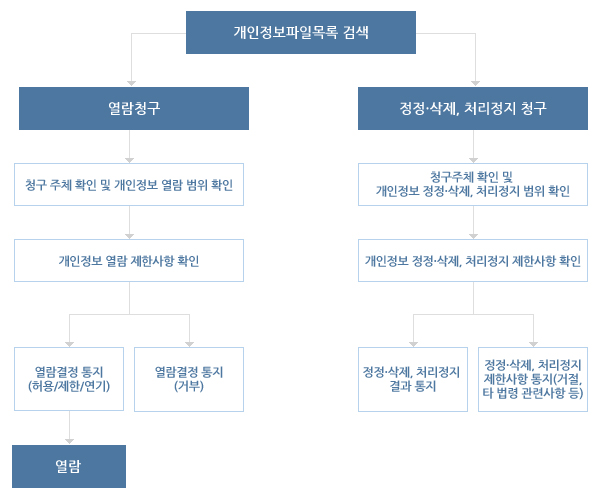Plenary Results
Plenary passes 101 bills at 4th meeting of 411th extraordinary session
- May 24, 2024
- 242
Plenary passes 101 bills at 4th meeting of 411th extraordinary session
- Space Aviation Agency established under the Ministry of Science and ICT and exemptions granted for organization,
personnel, and budget
- Incorporates the Korea Aerospace Research Institute (KARI) and the Korea Astronomy and Space Science Institute (KASSI)
- Chairman of the National Space Committee elevated to the President and Director of the Space Aviation Agency appointed
as an associate member
- Breeding, slaughter, distribution, and sale of dogs for consumption purposes prohibited, and criminal penalties imposed
for violations . . . Support for the closure and transition of dog breeding farms
- Sprinkler facilities installed in school dormitories, kindergartens, special schools, and temporary classrooms according to
seismic-resistant design standards
- Doctors prohibited from "self-prescribing" narcotics
- Support for activation of greenhouse gas emission trading market
The National Assembly of the Republic of Korea (Speaker: Kim Jin-pyo) passed 101 bills at the fourth plenary meeting of the 411th extraordinary session held on January 9, 2024. Major bills tabled for consideration are as follows:
<1> Special Act on the Establishment and Operation of the Korea Aerospace Administration*
The approved bill to enact the Special Act is intended to establish the Korea Aerospace Administration as a central administrative agency under the Minister of Science and ICT to handle affairs relating to the development of aerospace technology and promotion of the aerospace industry.
To ensure flexible operation of and secure competent personnel for the Korea Aerospace Administration, the Special Act provides special cases for its organization, personnel, and budget. Specifically, ▲ the head of the Administration is permitted to determine the establishment of advisory agencies and assignment of their respective duties; ▲ term-based officials are eligible for at least 20 percent of positions for public officials in general service deemed to require special expertise; ▲ the appointment of foreigners and dual-nationality holders is permissible for positions that do not affect national security. In addition, the Administration is permitted ▲ to execute its budget without additional approval within the scope agreed upon in advance with the Minister of Economy and Finance; and ▲ to establish the aerospace promotion fund with contributions by the government and donations by individuals, corporations, and organizations, for use in agency operations.
The Korea Aerospace Research Institute and the Korea Astronomy and Space Science Institute are incorporated under the jurisdiction of the Korea Aerospace Administration to enable integrated research and development in the aerospace and astronomical sciences and technology.
The concurrently passed amendment to the Space Development Promotion Act appoints the head of the Korea Aerospace Administration at the ministerial level to the post of secretary of the National Space Committee, and a non-governmental member to the post of vice chairperson of the Committee, in order to complement strategic planning and policy coordination functions in the space sector.
The chairman of the National Space Committee is elevated from Prime Minister to President, and the number of committee members is increased from the current 16 to a maximum of 30, by adding the Minister of Economy and Finance, the Minister of Science and ICT, the Minister of Foreign Affairs, the Minister of National Defense, and the Minister of Land, Industry and Energy.
The new Special Act takes effect four months after promulgation.
<2> Special Act on the Prohibition of Raising, Slaughter, and Distribution of Dogs for Human Consumption*
The approved Special Act stipulates measures necessary to end the consumption of dogs and provide support for the closure and transition of existing business entities.
The Special Act prohibits the raising, reproduction, and slaughter of dogs for human consumption, as well as the distribution and sale of food products whose ingredients are from dogs. A person who slaughters a dog for the purpose of human consumption shall be punished by imprisonment with labor for up to three years or a fine of up to KRW 30 million; and a person who raises or reproduces and distributes or sells a dog for the purpose of human consumption shall be punished by imprisonment for up to two years or a fine of up to KRW 20 million. To minimize social disruption, the prohibition and penalty provisions take effect three years after promulgation.
Upon promulgation, the establishment and operation of facilities, including dog breeding farms, intended for use in prohibited acts such as slaughter and distribution, shall be banned.
Owners of existing dog breeding farms, slaughterhouse operators and distributors, and dog-meat food service business operators must report their facility addresses and sizes to the head of a si/gun/gu (administrative area) within three months of promulgation; and submit and implement a ‘plan for the termination of dog eating’ containing the business closure and transition plans within six months of promulgation. The relevant central or local governments are required to provide support for the closure and transition of businesses to those that report and submit plans.
<3> Amendment to the Act on the Safety and Maintenance of Educational Facilities
The amendment is intended to mandate the installation of firefighting facilities, such as sprinklers, in (newly built, expanded, remodeled, rebuilt, relocated) educational facilities, including newly built dormitories.
Currently, educational facilities are equipped with sprinklers based on legislation on firefighting facilities, but the need for stronger regulations has been recognized given that many facilities are not subject to the mandatory installation.
Regardless of the size, purpose, and capacity of buildings, newly built school dormitories/training camps, kindergartens, special schools, and temporary classrooms shall be equipped with firefighting facilities such as sprinklers or basic sprinklers. In such cases, they shall comply with seismic-resistant design.
Modular classrooms assembled and installed on-site due to school construction and related reasons are defined as ‘temporary classrooms’ and, consequently, are mandated to ensure structural safety and facilitate evacuation, fire prevention, and firefighting as prescribed by Ordinance of the Ministry of Education.
<4> Amendment to the Narcotics Control Act
The amendment was approved to prohibit physicians, dentists, and other medical practitioners from prescribing or administering narcotic drugs or psychotropic substances for their own use.
This is a follow-up legislative measure to recent cases involving medical practitioners who handle narcotics who prescribed or administered narcotics for their own use. The misuse of narcotics for medical use has become a significant social issue.
The amended Act introduces a system for the redesignation of medical treatment and protection facilities for drug addicts and regulates the revocation of permits for medical practitioners who handle narcotics and who continue their business during the period in which the business is suspended.
Investigative agencies shall be allowed to notify local governments of businesses that serve as places for the sale or administration of narcotic drugs, thereby enabling administrative measures such as business shutdown.
<5> Amendment to the Act on the Allocation and Trading of Greenhouse-Gas Emission Permits
The amendment provides grounds for the self-trading and trading on consignment of greenhouse-gas emissions permits, in a manner similar to securities transactions.
It also adds provisions for registration requirements, registration cancellation, and compliance obligations of emissions permit exchanges. Its purpose is to expand the volume of emissions permits trading and promote the emissions permits trading market by establishing the basis for the participation of third parties, thereby increasing the number of business entities currently eligible for emissions permits allocation.
The amendment was approved in response to the increased importance of the greenhouse-gas emissions trading system that manages more than 70 percent of national greenhouse-gas emissions, amid an acceleration of greenhouse gas reduction, such as through the declaration of carbon neutrality by 2050 and the upgrading of the national greenhouse-gas reduction target for 2030.
* English translation of the original Korean titles is tentative.


